RFID Conference 2025

Earlier this month, the Auburn RFID Lab hosted the RFID Conference in Auburn, AL. Thank you to all our speakers, partners, sponsors, and attendees…
NASA, Delta Air Lines, and Auburn University RFID Lab Share Knowledge in Pursuit of Innovation

NASA representatives completed visits with Delta Air Lines facilities and the Auburn Radio Frequency Identification Laboratory at Auburn University in February to further the collaborative exchange of knowledge between the three organizations. The Auburn RFID Laboratory has a strong relationship with NASA and Delta Air Lines that stems from mutual determination to garner innovation within their unique industries…
2025 Auburn RFID Conference and Source Tagging Workshop

The 2025 RFID Conference and Source Tagging Workshop hosted by the Auburn RFID Lab is quickly approaching. This year’s conference will take place April 8th through the 10th and is open to end users and tag suppliers alike. Industry leaders and guest speakers will lead sessions covering the growth of RFID and new exciting developments within the field. Representatives from companies such as Carters, NASA…
Student Spotlight: Gavin Hardgrave, Auburn UnderGraduate

Our next senior spotlight features Gavin Hardgrave, an upcoming December graduate who has been with the lab for over four years. Gavin is currently the team lead of the Lab’s A-Team and has had many different responsibilities over his time at the lab; some of which include leading lab tours, in-lab testing…
Student Spotlight: Camden Davis, Auburn Graduate

Our first student spotlight features Camden Davis, who has worked for the lab for over two years and Graduated from Auburn University in May of 2024. During Camden’s time at the lab, he has been part of the Data Team, specifically focusing on the front and back-end development for the lab’s supply chain management web application. Specific tasks Camden completes include designing and…
From Arkansas to Auburn

As the Auburn football team prepares to play against the University of Arkansas, there is no better time to look back at the lab’s history and growth over the past two decades. While the lab has been connected to Auburn University since 2010, it was originally founded by Bill Hardgrave at the University of Arkansas in 2005. During his time…
Virtual Reality (VR) Team

Meet the Auburn University RFID Lab’s VR team! Based in one of the lab’s off campus locations (nicknamed the Little Lab), the VR team’s main focus is to successfully combine RFID sensors and virtual reality to create a seamless transition from the real world to the virtual. The Buzz team sat down with a few members of the VR team…
New Zebra Products!

This week, the Lab was thrilled to receive new products to use for testing from Zebra! We are very thankful to Zebra for their generous donation, and we are excited to put all of these items to use.
Laura Reeder
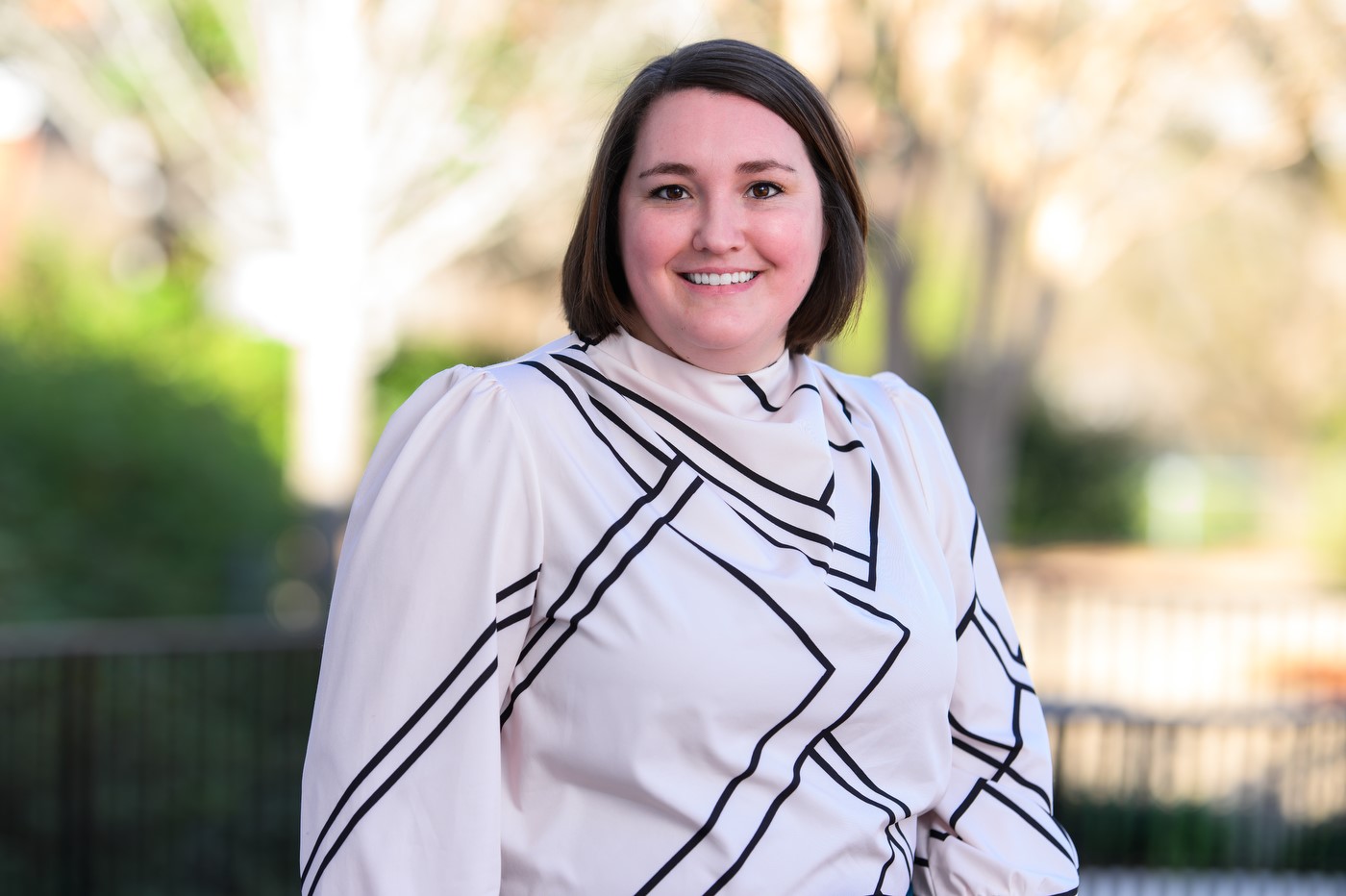
Meet Laura Reeder! Laura is the newest member of the RFID Lab and is joining the ARC team as a Program Manager. She graduated from UAB in 2011 with a degree in Excercise Science. After working as a Vet Tech, she moved to Auburn in 2014 and joined the School of Veterinary Science as a K9 instructor. There she worked on the Research and Development Team where she trained bomb sniffing dogs.
2024 Source Tagging Workshop
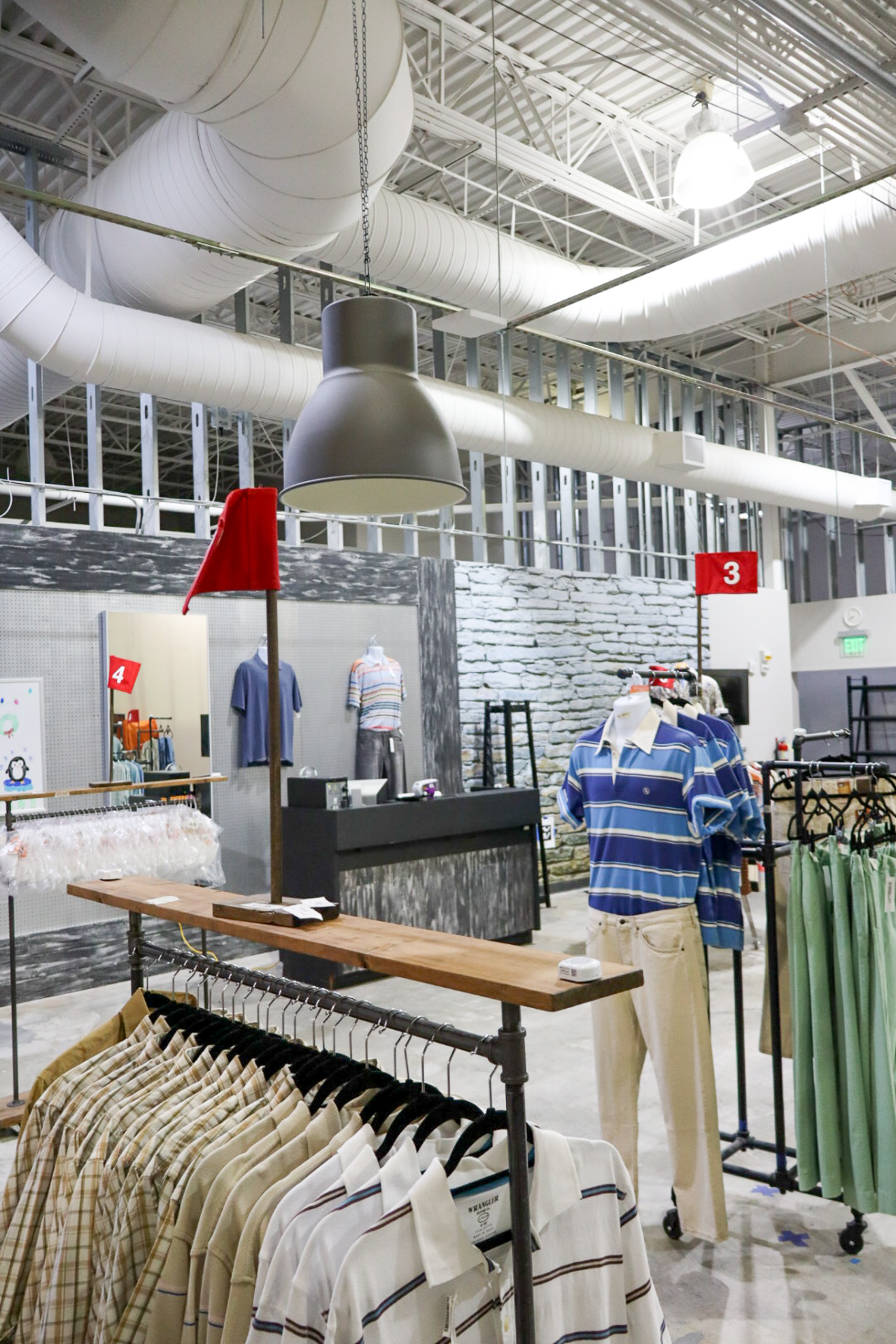
The Auburn RFID Lab is excited to announce the 2024 Source Tagging Workshop! The workshop will be held in Auburn, AL on April 3rd and 4th, 2024. We are so excited to be able to welcome both tag suppliers and end users to this event to learn more about implementing RFID solutions for their businesses!
RFID Student Spotlight: Ann Lilly McDaniel, BUZZ Team Lead
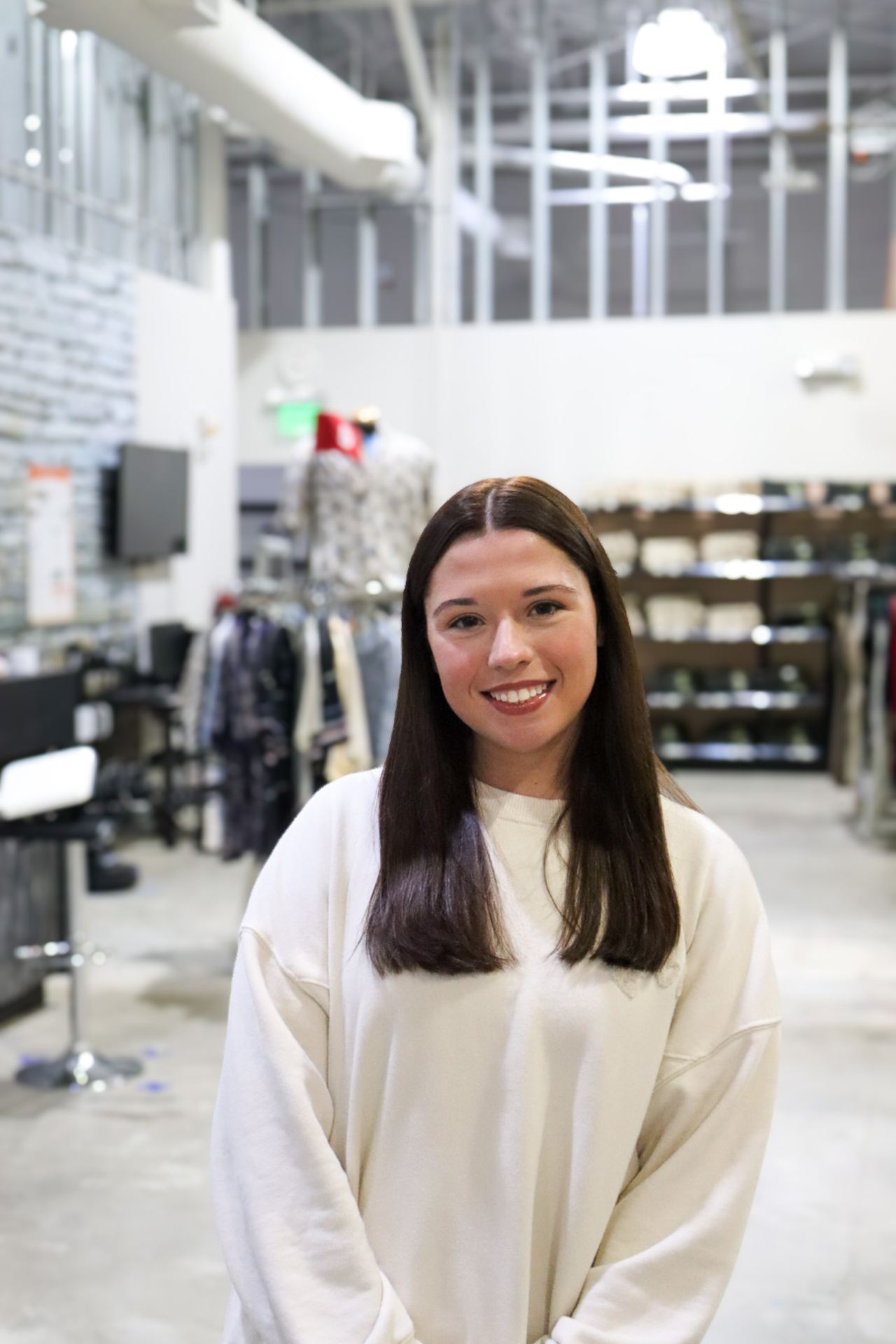
Meet Ann Lilly McDaniel, the team lead for our BUZZ team! Ann Lilly is a senior studying Apparel Merchandising and Supply Chain Management from Florence, Alabama. Ann Lilly has been working at the lab since August 2022. One of her favorite things about working in the lab is the opportunity to learn about retail technology daily!
RFID Crash Course
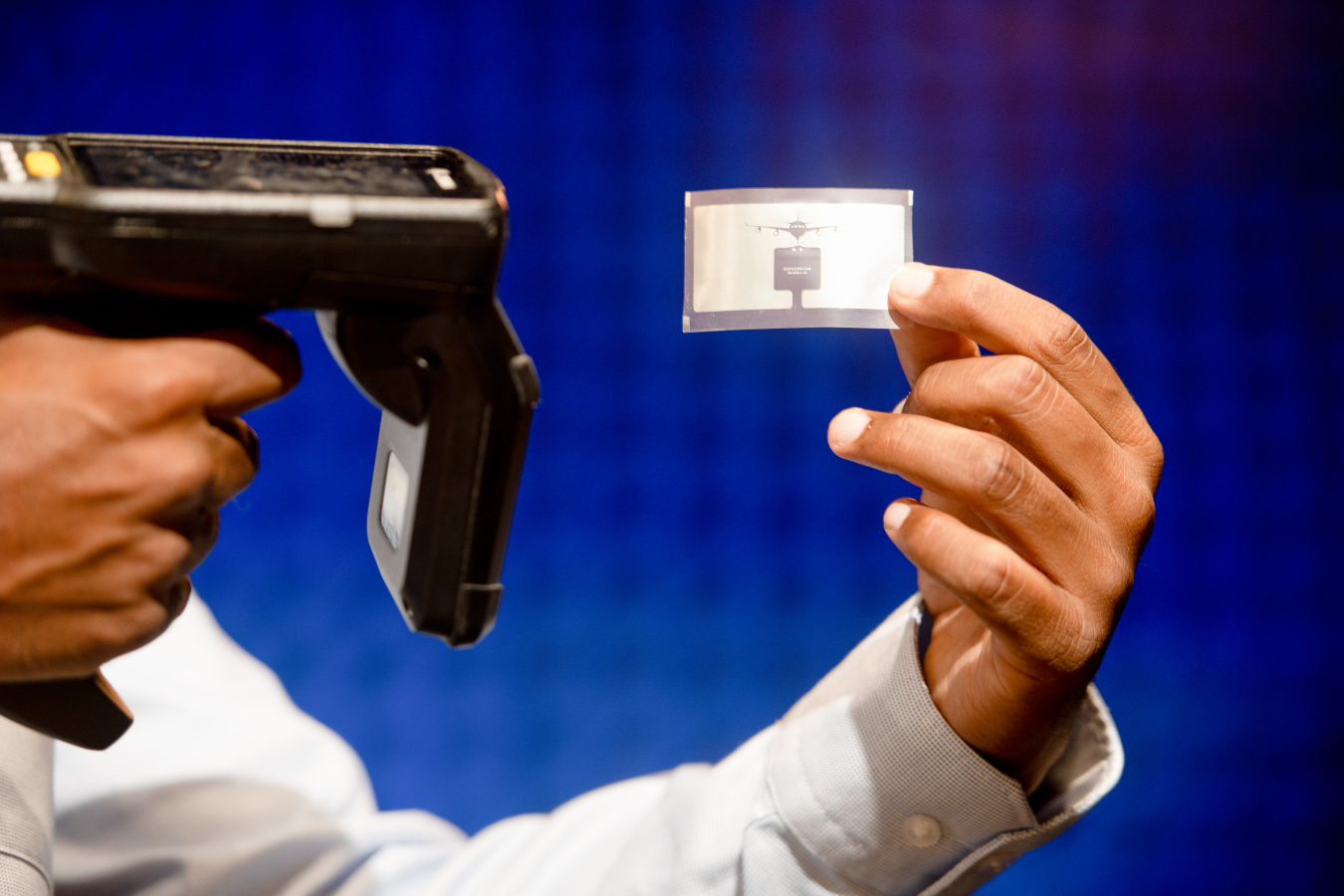
RFID. You’ve probably heard the name tossed around, been told to buy a special wallet to stop it, or maybe even seen an RFID tag in a store. But what exactly is RFID? RFID stands for Radio Frequency Identification. RFID systems are used to transmit data quickly and painlessly. RFID systems are made up of three parts: the tag, the antenna, and the reader. The reader sends out radio waves, which are amplified by the antenna. The radio waves activate the tag, which then broadcasts its data back to the reader.
The Lab in 2024
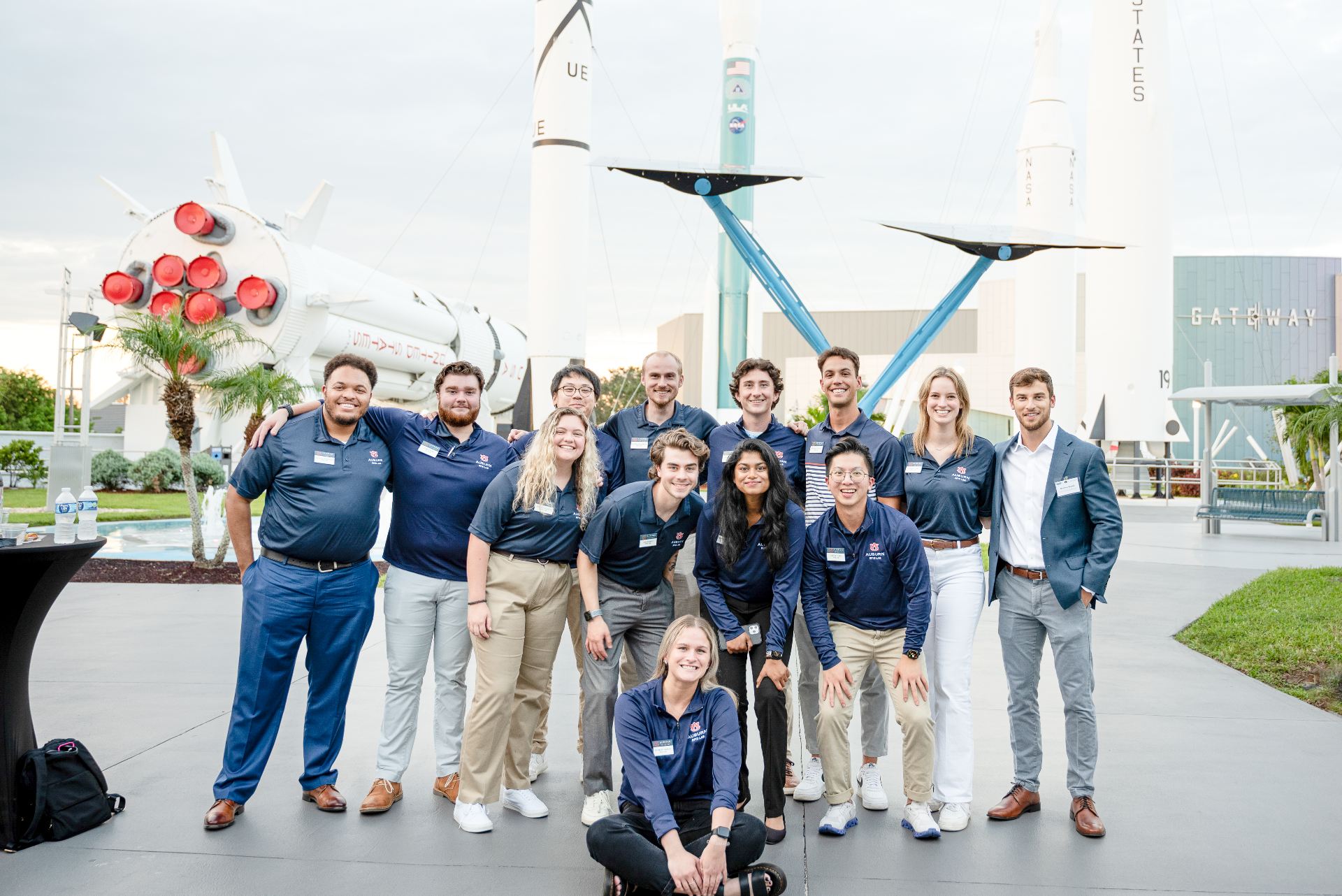
As the dust settles from the craziness of the holiday season, its time to start reflecting on the past year, and look forward to what the new year will bring for our lab and RFID technology. Through the end of 2023, there were many exciting events in the lab. Between a visit from Walmart Executives to a lab-wide Christmas party, the hustle and bustle of year-end activities was no stranger to our building. The visit from Walmart allowed us to show the executives not only the progress that the lab has already made in RFID research, but also give them a glimpse into the future of the labs work in supply chain management and inventory tracking solutions.
CHIP Project (Chain Integration Pilot)

The Auburn University RFID Lab has publicly announced the CHIP Project, a blockchain proof-of-concept for serialized data exchange in the Retail and Apparel supply chain. CHIP, an acronym for CHain Integration Pilot, will be the first of its kind in the industry, with the goal of integrating item-level data streams from various stakeholders into a blockchain solution, creating a common record of information jointly shared by trade partners that will enable end-to-end visibility and data-driven decision making throughout the value chain.
RFID Lab Joins Hyperledger Collaboration hosted by the Linux Foundation

The Auburn University RFID Lab is excited to announce its new membership with Hyperledger, a global collaboration hosted by the Linux Foundation that focuses on the advancement of blockchain and DLT technologies. Hyperledger functions as a greenhouse for a series of open source blockchain frameworks with cross-industry applications, ranging from finance and banking to supply chain and logistics. As one of the largest working consortiums of its kind, Hyperledger is comprised of hundreds of contributing organizations such as Accenture, Deloitte, IBM, Intel, Oracle, JP Morgan, and many more.
Journal of Business Logistics STF – A Conversation with Yorke Rhodes
In this webinar, meet Yorke Rhodes, one of the co-founders of Microsoft’s Blockchain initiative, and hear him discuss the process behind the project. Follow along as members of the JBL (Journal of Business Logistics) ask Rhodes about blockchain technology and its implications in various sectors.
Dr. Jian Zhang: First Post-Doc and His Focus on Grant Research
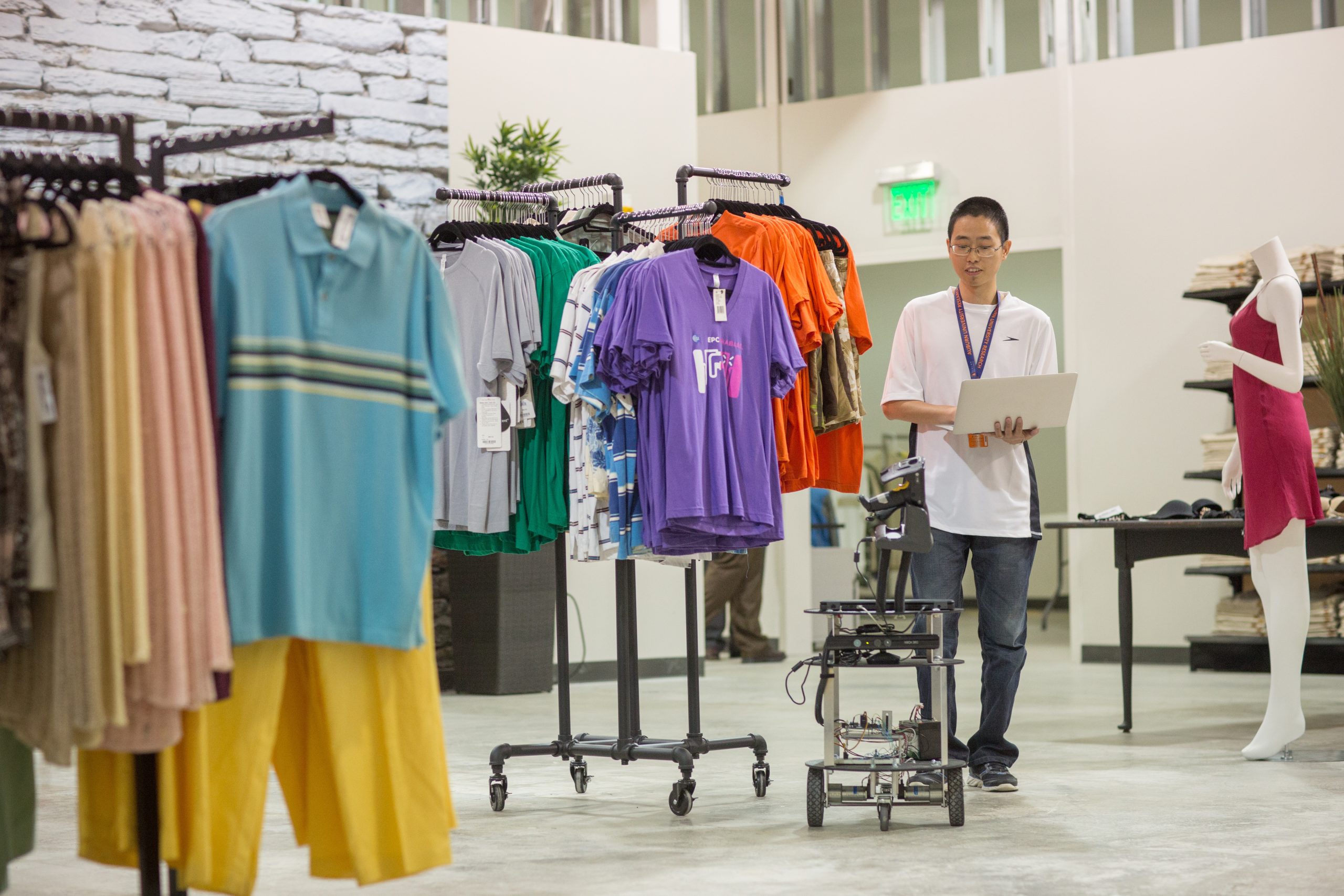
Pictured above: Doctoral Graduate, Jian Zhang testing his robot, Jianny 5 in the mock retail store in the RFID Lab.
Auburn University RFID Lab’s First Doctoral Student: Jian Zhang
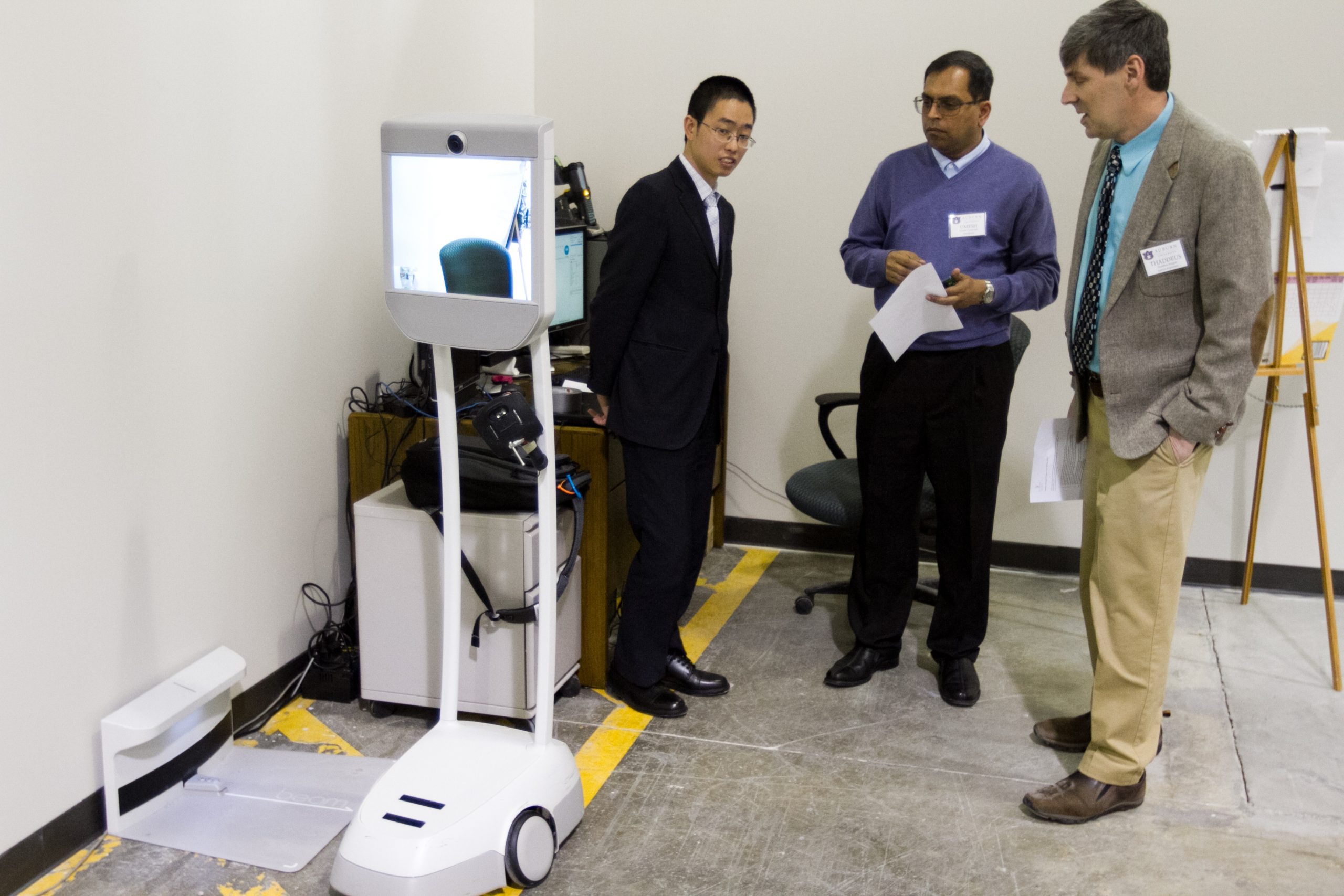
Pictured above: Jian Zhang discussing his work with colleagues at a recent RFID Lab event
Julia Marr: NRF Scholarship Recipient
Julia Marr, a Junior in Supply Chain Management and a Lab Assistant at the Auburn RFID Lab, received a scholarship from NRF to attend the 2017 conference in NYC.
Who Pays for Retail RFID Tagging?
Whether the brand buys the tags or the retailer subsidizes tagging, the cost will be absorbed into the cost of the item in the long run. We still have a few apparel retailers ask us about cost of goods increases for RFID tagged items. What many of them don’t realize is that the per-item cost of apparel RFID is quickly becoming independent of whether or not the retailer actually has an RFID program. Unless it’s an exclusive or private label item, retail RFID tagging is fast becoming a standard feature rather than a retailer requested option.
Takeaways from the RFID Lab Open House
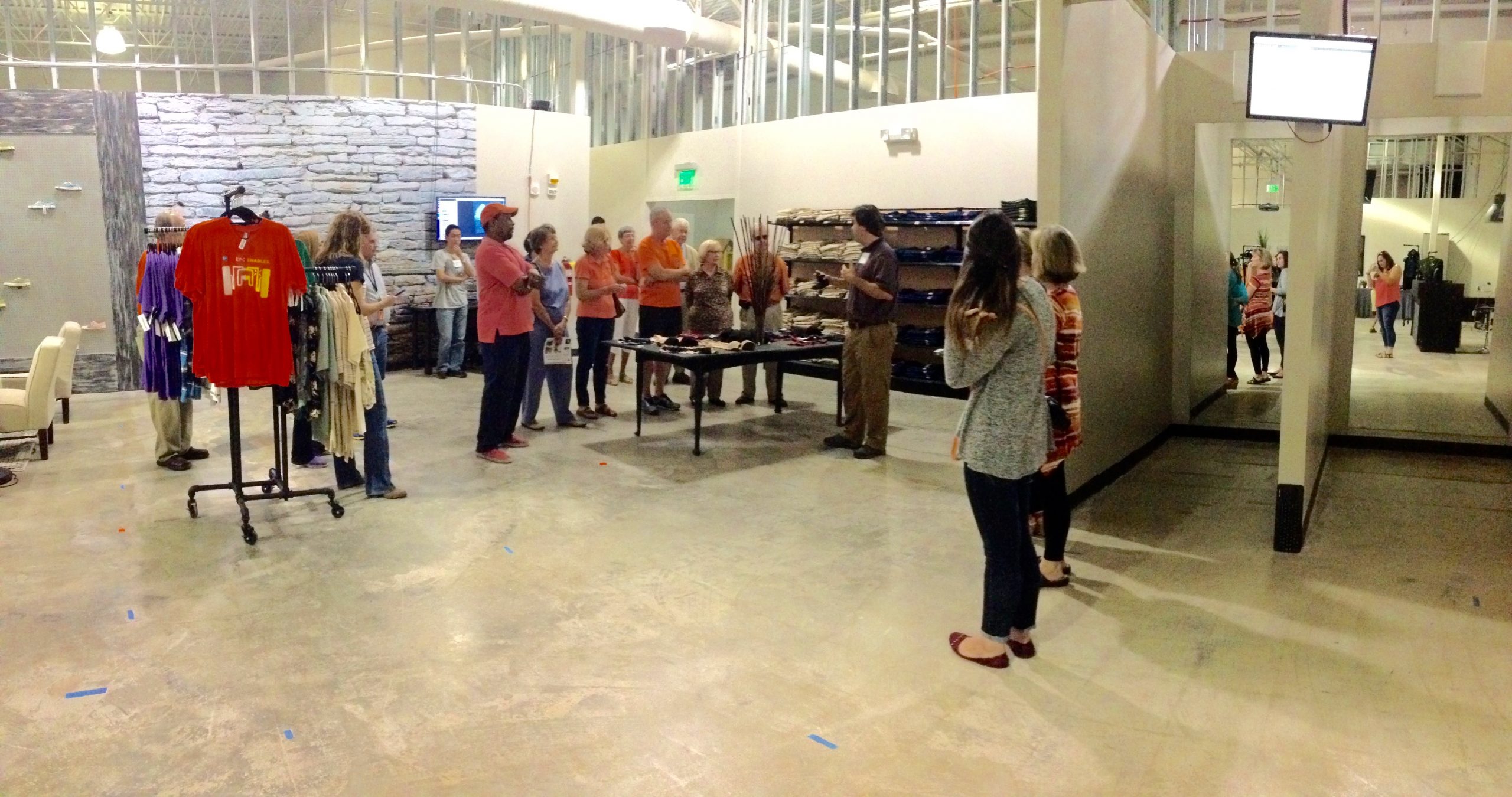
On September 23rd, the Auburn University RFID Lab hosted an open house and offered an interactive tour of the facility. Visitors of all ages attended out of curiosity and excitement. Many wanted to know what the lab does on a day-to-day basis, while others came to learn the basics of RFID and its applications.
Auburn RFID Lab
Auburn University’s RFID Lab specializes in the business case and technical implementation of radio frequency identification technology in retail, supply chain and manufacturing settings.
In moving to Auburn University in 2014, the lab was reunited with its founder, Harbert College of Business Dean Bill Hardgrave. Hardgrave helped launch the lab at the University of Arkansas in 2005.
The lab has continued to work with leading retail, supply chain, manufacturing and technology companies.
